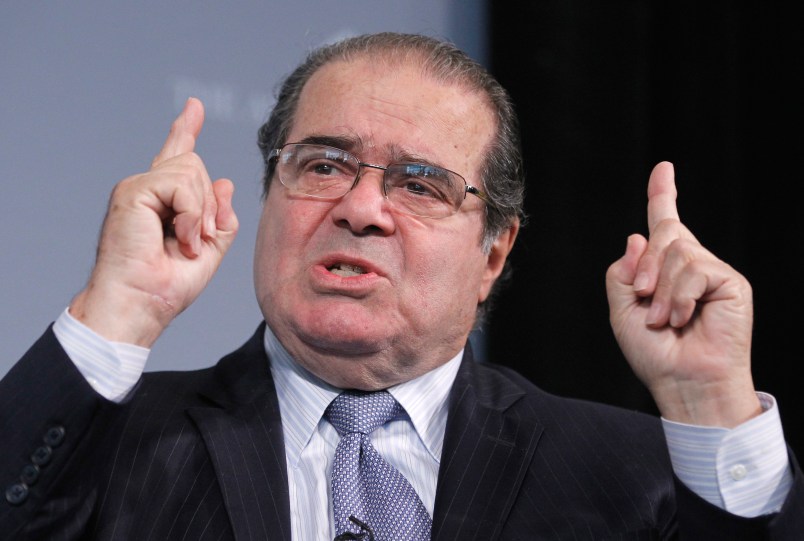In his dissent from the Supreme Court’s decision upholding Obamacare subsidies in 34 states, Justice Antonin Scalia accused the six-vote majority of engaging in “interpretive jiggery-pokery.”
The court “rewrites the law to make tax credits available everywhere,” he wrote. “We should start calling this law SCOTUScare.”
The case, King v. Burwell focused on a phrase that the challengers said invalidated subsidies in the states where the federal government was operating the insurance exchange.
“You would think the answer would be obvious—so obvious there would hardly be a need for the Supreme Court to hear a case about it,” Scalia wrote. However by a 6-3 vote, the court, in a opinion written by Chief Justice John Roberts, sought to uphold them.
“Under all the usual rules of interpretation, in short, the Government should lose this case. But normal rules of interpretation seem always to yield to the overriding principle of the present Court: The Affordable Care Act must be saved,” Scalia wrote in his scathing dissent.
The phrase the case focused on referred to Obamacare tax credits being offered to consumers in exchanges “established by the State.” The government successfully argued that in context of the law, that included exchanges in 34 states that were operated by the federal government.
“Words no longer have meaning,” if the phrase meant what the government sent it meant, Scalia said.
“Today’s interpretation is not merely unnatural; it is unheard of. Who would ever have dreamt that ‘Exchange established by the State’ means ‘Exchange established by the State or the Federal Government’?” Scalia wrote. “Little short of an express statutory definition could justify adopting this singular reading.”
Scalia accused the Supreme Court of performing “somersaults of statutory interpretation” in its “defense of the indefensible.”
The Court interprets §36B to award tax credits on both federal and state Exchanges. It accepts that the “most natural sense” of the phrase “Exchange established by the State” is an Exchange established by a State. Ante, at 11. (Understatement, thy name is an opinion on the Affordable Care Act!) Yet the opinion continues, with no semblance of shame, that “it is also possible that the phrase refers to all Exchanges—both State and Federal.” Ante, at 13. (Impossible possibility, thy name is an opinion on the Affordable Care Act!) The Court claims that “the context and structure of the Act compel [it] to depart from what would otherwise be the most natural reading of the pertinent statutory phrase.”
Scalia pointed to other times the phrase “by the State” was used in the law.
“It is bad enough for a court to cross out “by the State” once. But seven times?” he wrote.
He went on to describe the majority’s logic as “Pure applesauce.”
Scalia was joined in his dissent by Justices Samuel Alito and Clarence Thomas.











Spoken like the activist justice that he is.
And I don’t care a whit what you have to say on the subject…
Scags, your head exploding, makes me smile!
I would like to see the ACA used to remove Scalia’s SCROTUM.
At this point all Scalia has left is sour grapes. The interpretation is not unheard of and Scalia knows it.